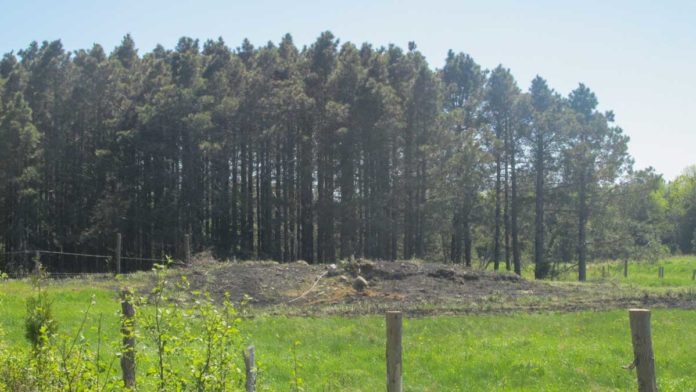KAGAWONG—Homes and buildings account for almost 20 percent of Canada’s greenhouse gas emissions. A new funding initiative aimed at supporting energy efficient home upgrades and creating energy advisor jobs in Canada was announced on May 17. The Green Homes initiative is in partnership with Efficiency Canada and will invest $10 million in recruiting and training energy advisors. Retrofitting our homes to make them more comfortable and efficient is an important measure in the fight against climate change and will save money, said Jonathan Wilkinson, minister of environment and climate change.
Kim Neale of Kagawong may be familiar to some as the shared climate change coordinator for Central Manitoulin and Billings Township. She has been guiding the townships towards the development of Community Energy Emissions Plans with assistance from both municipality’s respective climate advisory committee. She holds a degree in environmental engineering from the University of Guelph and a Certified Energy Management (CEM) designation.
Ms. Neale has already completed 16 weeks of the training program to become a Natural Resources Canada (NRCAN) energy advisor. “All you need is a curiosity for energy efficiency,” she said. “You don’t even need a university degree. The NRCAN course I am doing right now is so much more practical and the certification leads to so many career opportunities. I was shocked when I learned about that in class.”
In the May 17 announcement, Minister of Natural Resources Canada Seamus O’Regan said the initiative is another step forward in Canada’s fight against climate change. Canada could get one third closer to its Paris Agreement goal of reducing greenhouse gas emissions by 30 percent by 2030 with optimal energy efficiency, he said.
The Greener Homes Grant program was announced on May 27 and will help retrofit up to 700,000 homes by providing energy audits and grants up to $5,000 for homeowners to make energy efficient retrofits to their primary residences and up to $600 to help with the cost of home energy evaluations. Eligible home improvements and upgrades include replacing windows and doors, adding insulation, sealing air leaks, improving heating and cooling systems (such as with heat pumps) and purchasing renewable energy systems like solar panels.
“If you’re a homeowner this will lower your home energy bills all while fighting climate change and creating good, middle class jobs,” Prime Minister Trudeau said. “To make these renovations happen we need workers who can install windows, heating and cooling experts, electricians and insulation specialists. Before any of that work gets going on your house, you need an energy advisor who can tell you where you’re losing heat in the winter and why your house is getting too hot in the summer so you can make the best investment decisions for you.”
People from all walks of life will be recruited to join the growing energy advisor sector but applicants from underrepresented and marginalized groups will be prioritized. Advertising efforts will be focused towards Indigenous and remote communities, LGBTQ+ people and women. Minister of Employment Carla Qualtrough noted women make up only 15 percent of the energy workforce sector and this recruitment effort aims to foster an equitable recovery from the gendered wage gap emphasized by the COVID-19 pandemic.
Ms. Neale entered the program prior to this funding announcement but was able to obtain assistance through the Saint John Community Loan Fund based in New Brunswick. “The federal government is desperate to get more energy advisors certified, especially women (who are grossly underrepresented in the field),” she explained. “I just needed an updated resume and to demonstrate my passion for energy efficiency.” Her fees were covered and she attends a course once per week alongside 20 women from across the country.
To become an energy advisor, candidates must pass two qualification exams and be affiliated with an NRCAN-licenced service organization. “The hardest part has been finding a licenced service organization operating near the Island that can work with to get my hands-on experience,” she said. The loan fund is helping her find one but the nearest Northeastern Ontario options have been limited to North Bay and hopefully Sudbury.
Proposals must be received by July 8, 2021 and Natural Resources Canada will schedule webinars with potential applicants to answer any questions and provide additional support. More information is available on NRCAN website; search for ‘how to become an NRCAN-registered energy advisor.’ Those with limited internet access can call 1-833-674-8282.
Energy advisors are expected to perform up to one million home energy audits and provide recommendations for effective retrofit measures. Ms. Neale is currently studying for her first exam and will be obtaining her mandatory 15 hours experience under a certified energy advisor over the summer before writing her final qualifying exam. She is starting a non-profit called Manitoulin Climate Consortium (MCC) which will, among other things, offer energy advisor services to Manitoulin homeowners. MCC will conduct two or three pilot home energy assessments over the summer. Ms. Neale anticipates MCC services will be available to Manitoulin Island clients beginning this fall.





